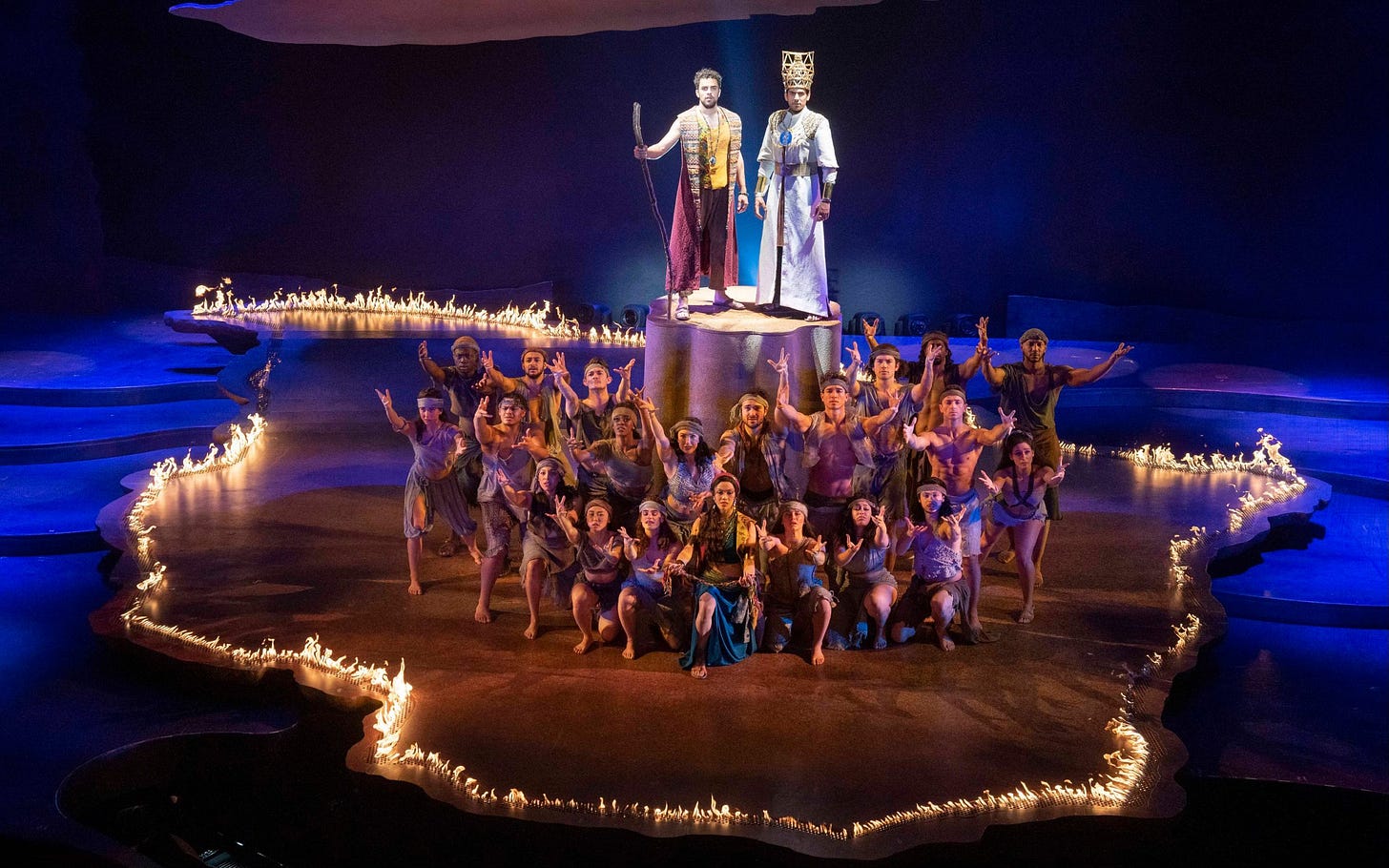The Prince of Egypt: The Musical
2023
It is a no-brainer that Broadway legend Stephen Schwartz (Godspell, Wicked, etc.) would create a full-length epic Broadway musical out of his Oscar-winning work on DreamWorks’s surprisingly good The Prince of Egypt. It is one of THE stories, and his songs and score for the animated movie were excellent. Moreover, there hasn’t been a successful stage mus…




